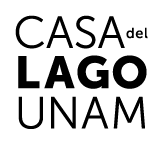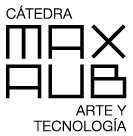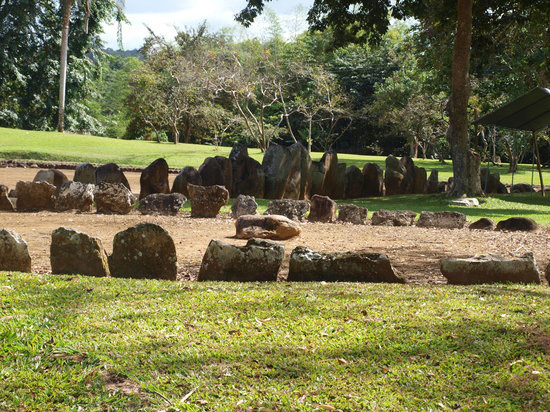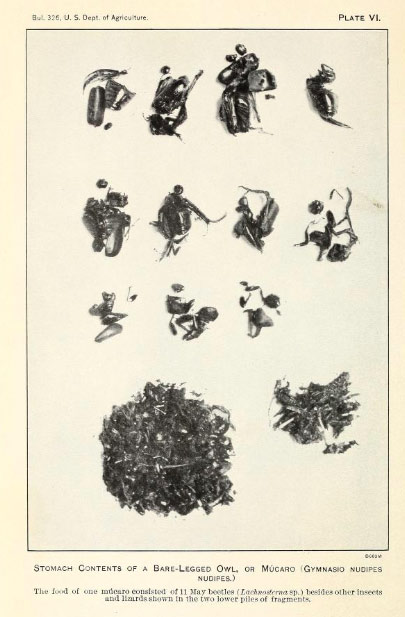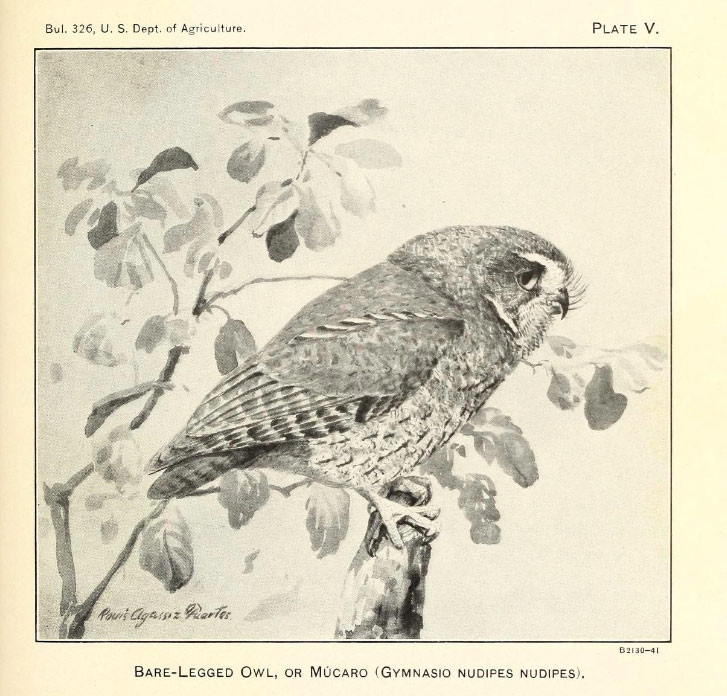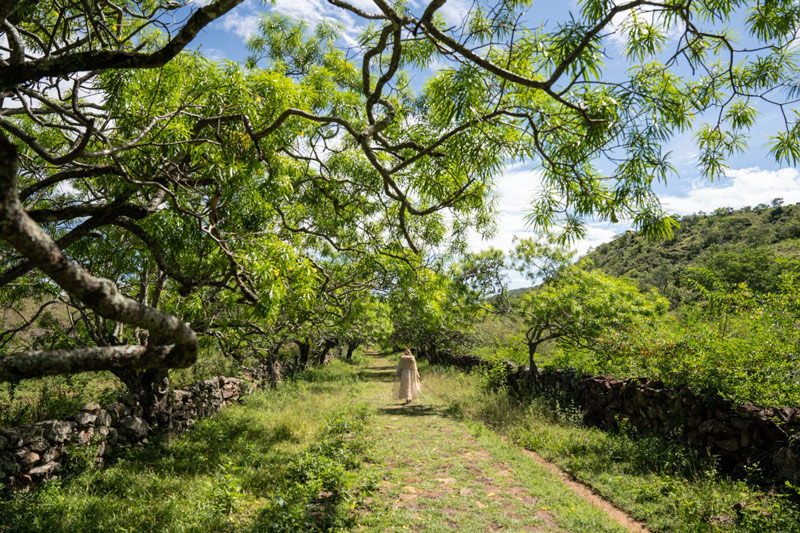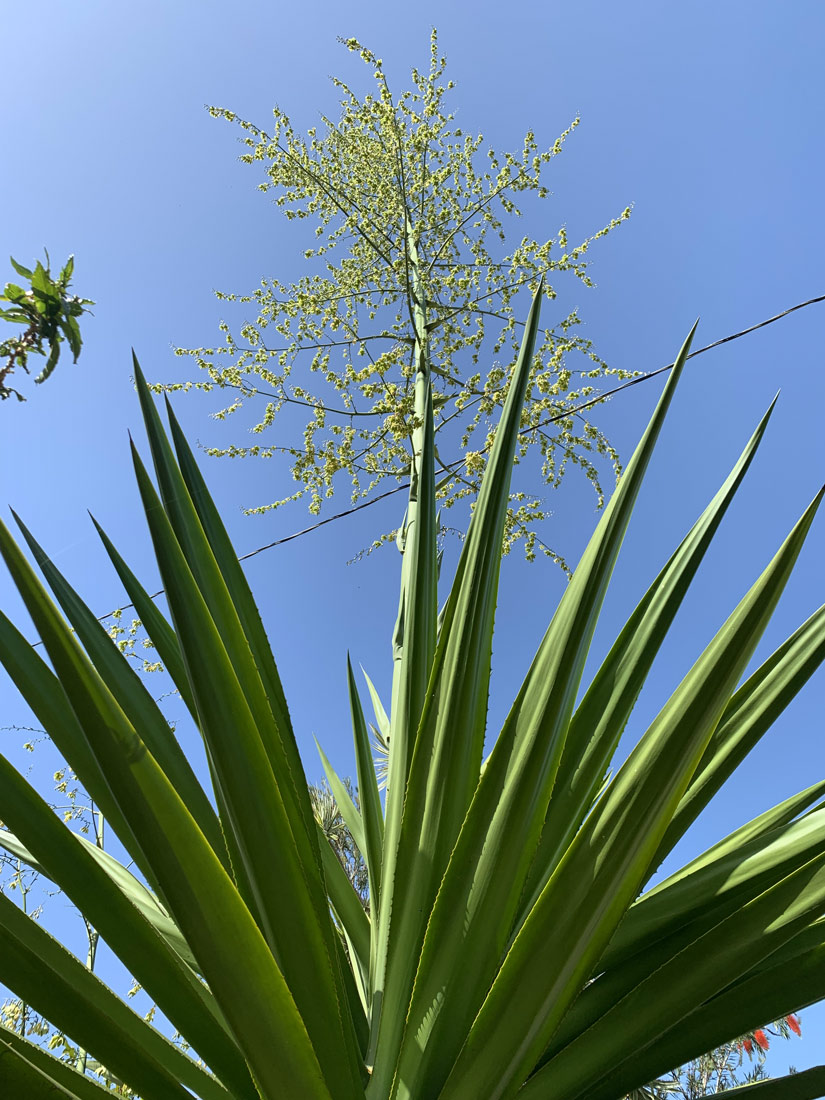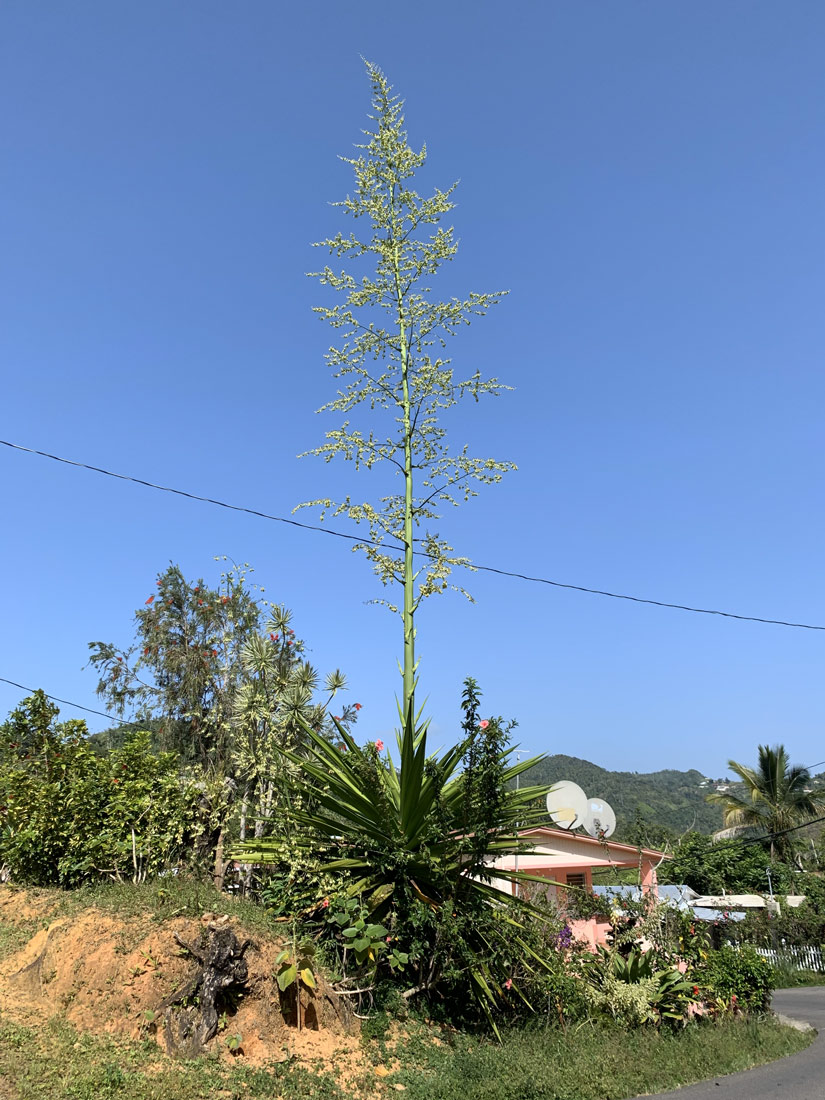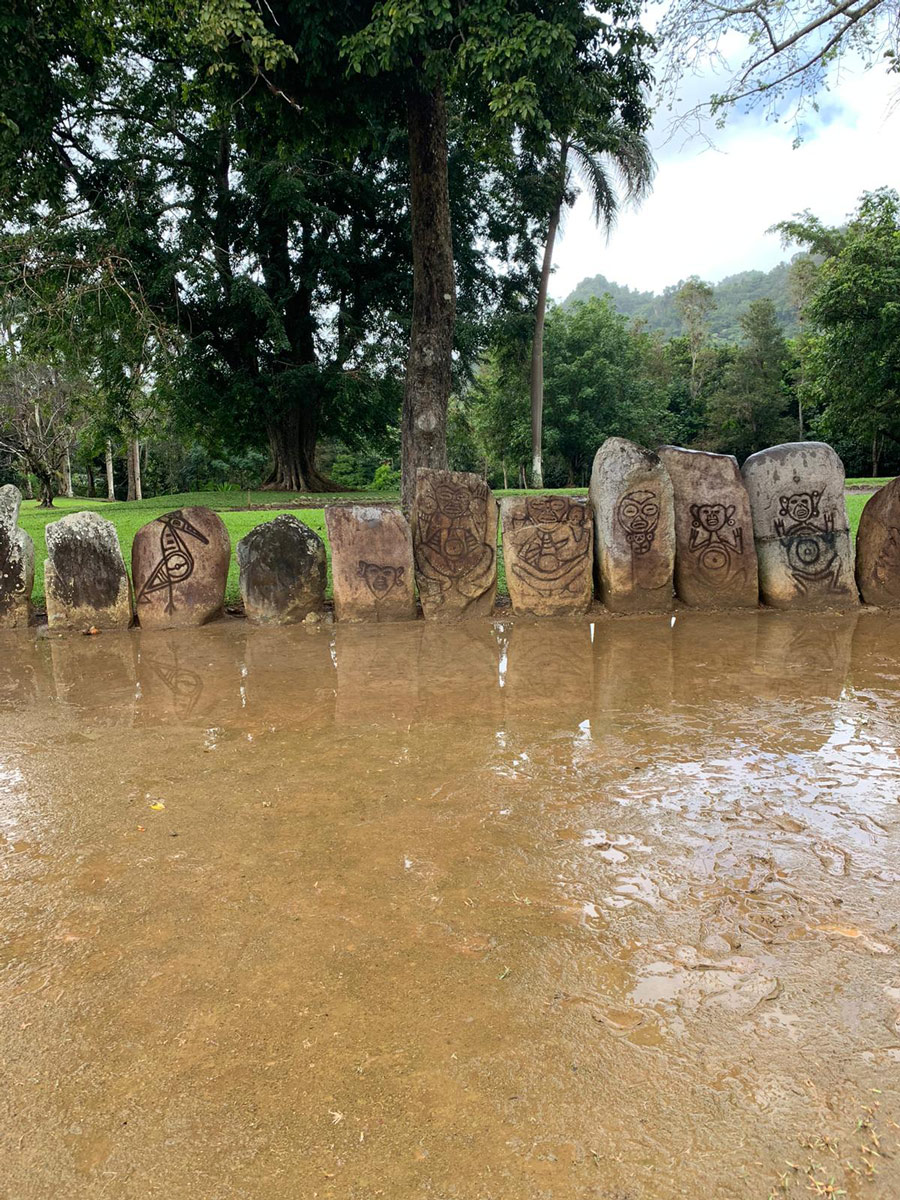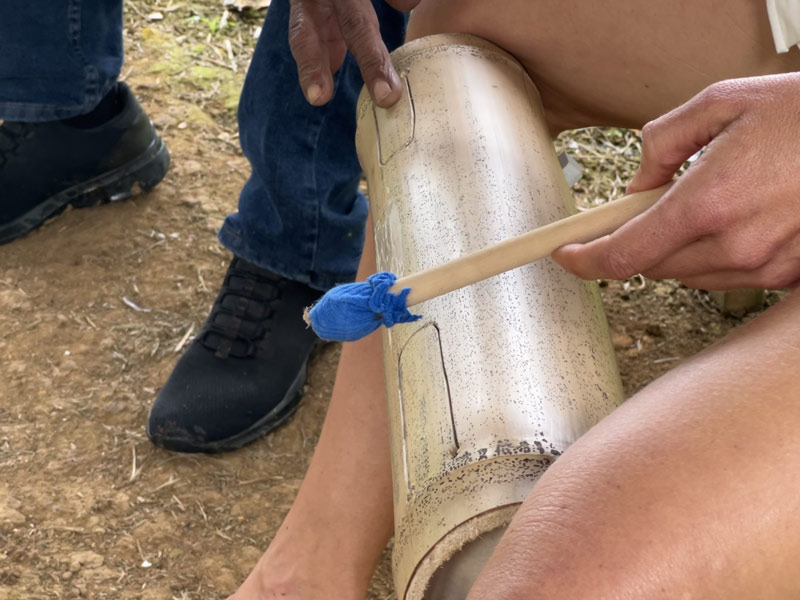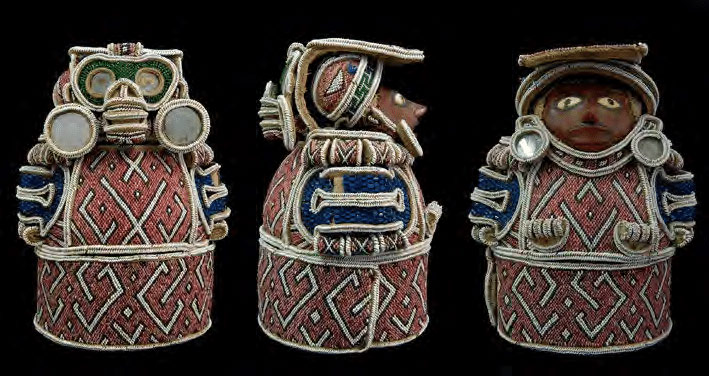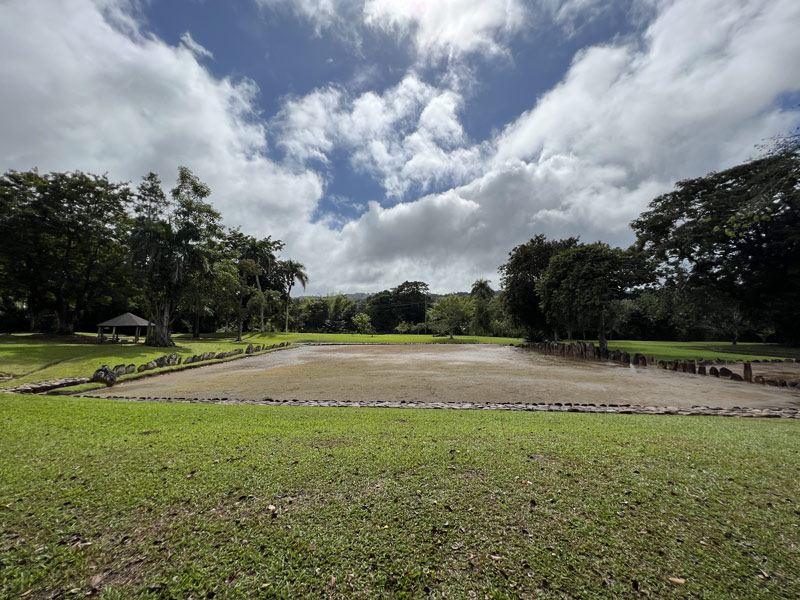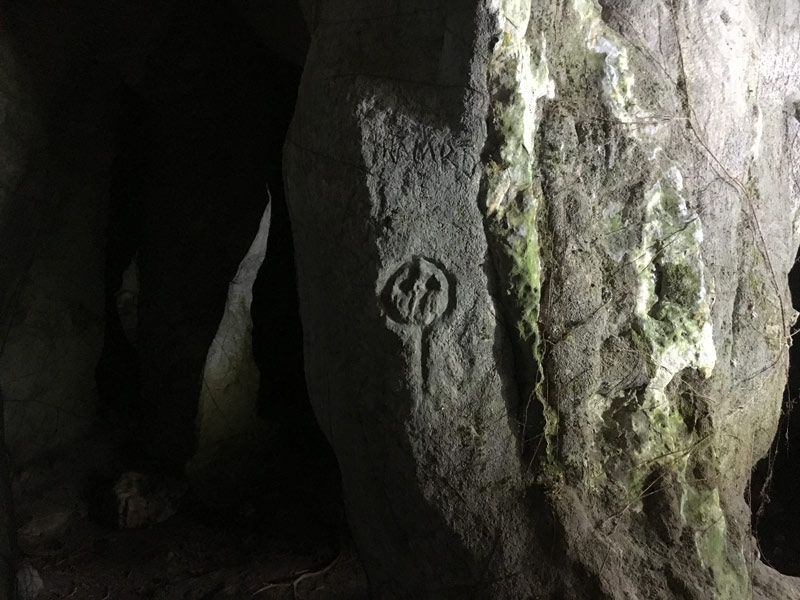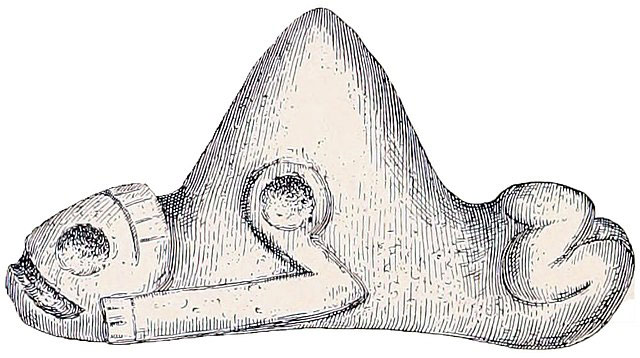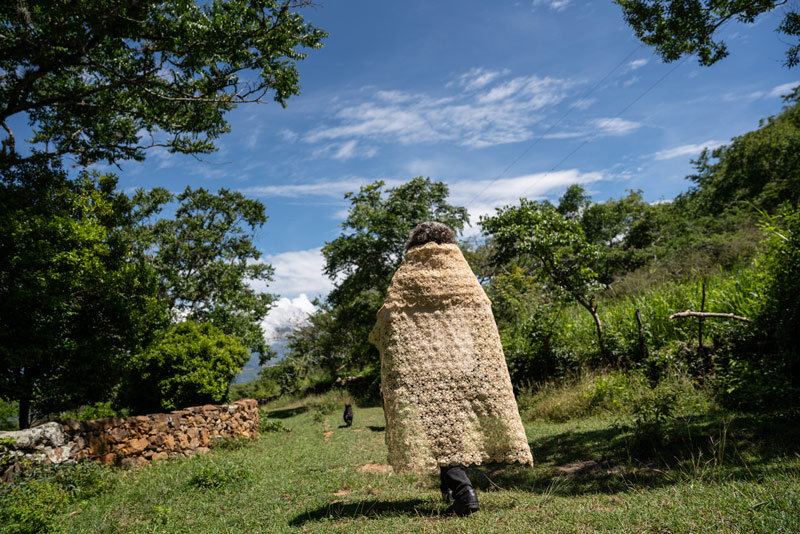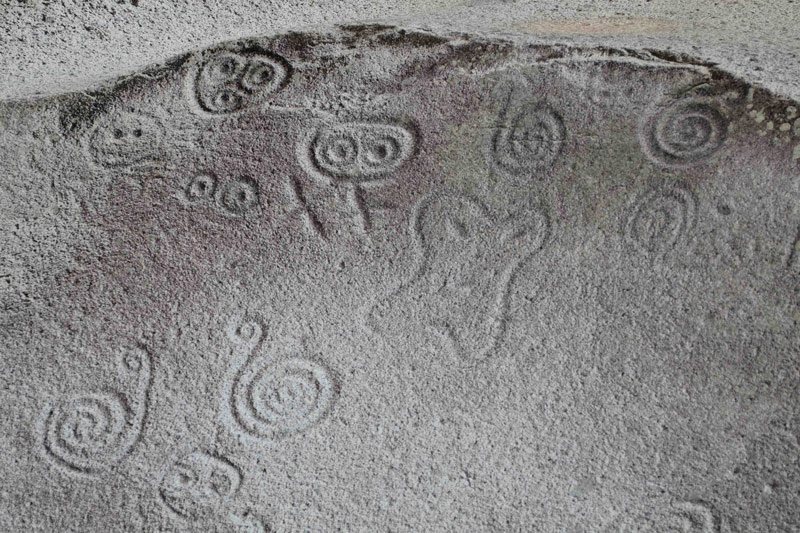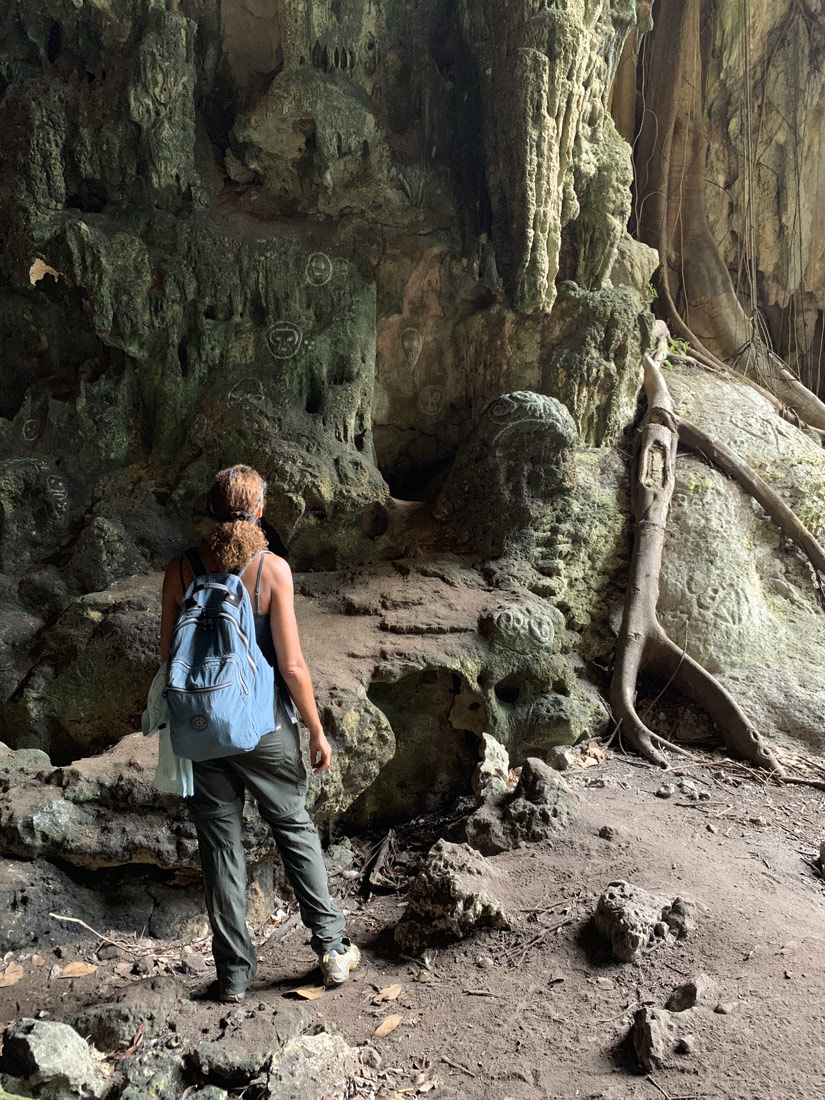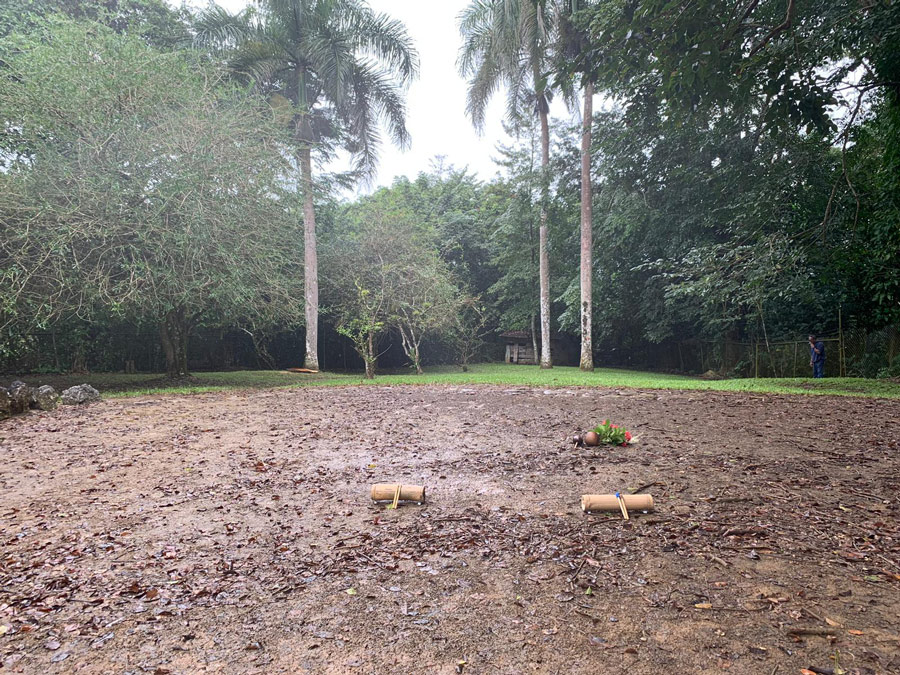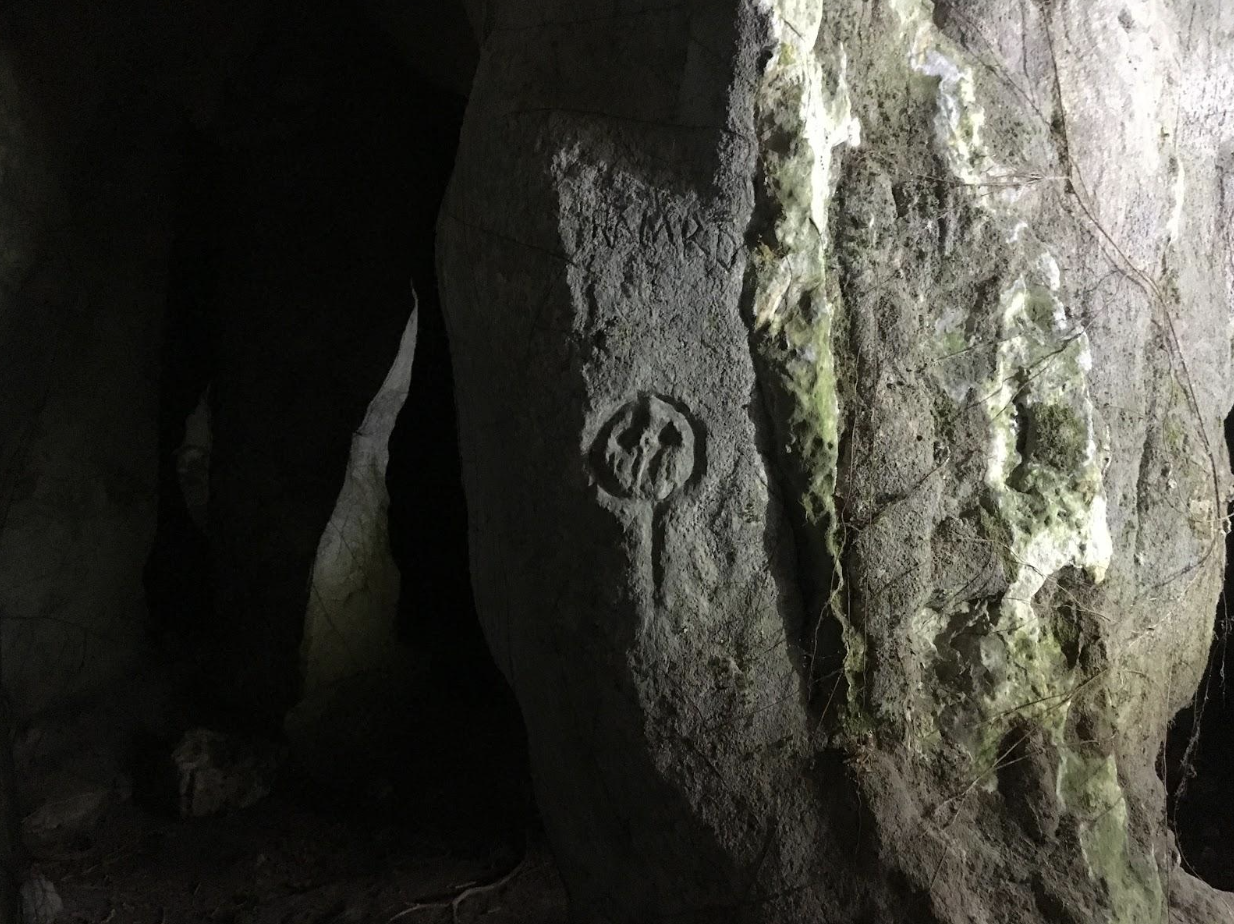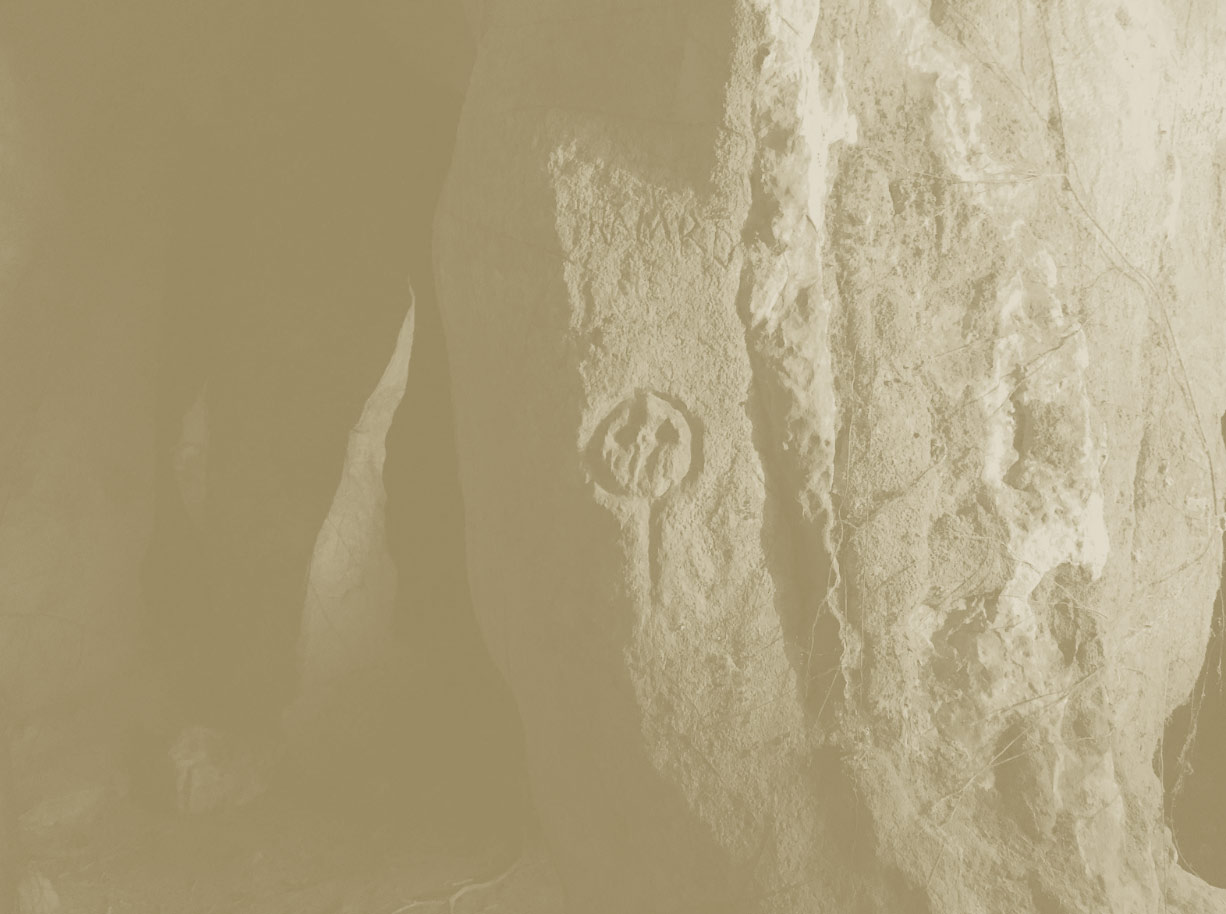El múcaro a lo lejos
Bajo el título El múcaro a lo lejos, la edición de Materia Abierta 2023 es curada por el artista Jorge González Santos y se llevará a cabo en la Ciudad de México del 31 de julio al 26 de agosto. El programa es desarrollado con el apoyo de la Universidad Nacional Autónoma de México (UNAM) en coordinación con Cultura UNAM, Casa del Lago UNAM, la Cátedra Extraordinaria Max Aub, Transdisciplina en Arte y Tecnología y Museo Tamayo.
El programa de este año buscará entretejer las prácticas rituales, la construcción de memoria y las culturas materiales, reuniendo conocimientos provenientes de distintos lugares del Caribe y entendiéndolos como territorios indispensables para resignificar el potencial político de instrumentos estéticos y saberes ancestrales. Invocando al antiguo canto del múcaro, una pequeña ave endémica de Borikén, el programa será un encuentro para interiorizar y colectivizar la escucha entre resonancias y murmullos compartidos.
El múcaro a lo lejos
Under the title El múcaro a lo lejos, the 2023 edition of Materia Abierta is curated by artist Jorge González Santos, and it will take place in Mexico City from July 31 to August 26. The program is developed with the support of Universidad Nacional Autónoma de México (UNAM) in coordination with Cultura UNAM, Casa del Lago UNAM, Cátedra Extraordinaria Max Aub, Transdisciplina en Arte y Tecnología, and Museo Tamayo.
This year’s program seeks to interweave ritual practices, memory construction, and material cultures, assembling knowledge from different locations in the Caribbean considered essential to resignifying the political potential of aesthetic instruments and ancestral knowledge. Calling upon the ancient chant of the múcaro, a small bird endemic to Borikén, the program will be a gathering to interiorize and collectivize the act of listening between shared resonance and murmurs.
Contra pedagogías
Materia Abierta es un espacio para el aprendizaje libre que fomenta procesos para la socialización de los saberes desde la acción, la movilización de la voluntad política y la ritualización del pensamiento crítico a partir de principios colectivos. Es un ensayo sostenido en el reconocimiento de todas las fuerzas que se convocan para provocar la posibilidad de compartir y aprender.
El programa se reescribe cada año, generando convivencia en torno a motivaciones comunes. Algunas de las actividades de este verano se llevarán a cabo, por primera vez, en nuestro propio espacio, el cual será modificado por el grupo de participantes facilitando dinámicas de cooperación cotidiana para ejercitar formas de trabajo adaptativas que sostengan contextos de solidaridad y responsabilidad.
La edición de este año está tramada con el objetivo de construir intimidad crítica y afectividad indagativa. Las personas que participen trabajarán en un proyecto artístico o de investigación en etapas tempranas de desarrollo. Este será un punto de partida para ampliar exploraciones personales, instigar colaboraciones y generar diálogos entre el grupo. Así mismo, se coordinarán múltiples presentaciones para exponer los procesos a la comunidad extendida de Materia Abierta, compuesta de colegas, amistades y vecinas.
Counter Pedagogies
Materia Abierta provides a space for autonomous learning that aims to foster the socialization of knowledge from action, the mobilization of political will, and the ritualization of critical thinking based on collective principles. It is a sustained exercise that acknowledges all the summoned forces to make sharing and learning possible.
The program is reshaped each year, generating a gathering around common motivations. For the first time, some of this summer’s activities will take place in our own space, which will be modified by the participants to enable the dynamics of day-to-day cooperation. Our intention is to adapt working models to sustain contexts of solidarity and accountability.
This year's edition has been planned with the objective to build critical intimacy and inquiring affectivity. Participants will work on an artistic or research project in its early stages of development, which will be a point of departure to amplify personal explorations, instigate collaborations, and generate dialogue within the group. Presentations will be coordinated to socialize these processes with the extended community of Materia Abierta, composed of peers, friends, and neighbors.
PROGRAMA
El múcaro a lo lejos remite a un canto ancestral de Borikén que pervive monte adentro, en un constante murmurar entre amanecer y atardecer. Su silbido se confunde con una vibración sostenida en la espesa densidad del bosque. Invocando el misterio de este canto, afianzamos la fuerza que el sonido y sus vibraciones tienen sobre las redes de vida. El programa de Materia Abierta 2023 será un espacio de aprendizaje y cuidado colectivo, determinando la voluntad de interiorizar como primera escucha. Esta reunión entre múltiples voces entreteje diversas relaciones afectivas que se extienden desde principios de generosidad, reivindicación y autosuficiencia.
Siguiendo principios propuestos por la Escuela de Oficios, una iniciativa para el aprendizaje desarrollada por el artista Jorge González Santos en colaboración con diversas comunidades caribeñas, esta edición de Materia Abierta estará enfocada en el trabajo a partir de técnicas milenarias y colectivas. A través de actividades teóricas y prácticas, un grupo diverso de artistas, pensadoras, sanadoras y artesanas intercambiarán saberes para relacionarse con los quehaceres materiales entendidos como la intersección de múltiples sistemas de conocimiento que sobrepasan las técnicas en sí mismas. Desde allí, nos acercaremos a las políticas cotidianas de las materialidades como expresiones de complicidad, al aprender distintos oficios de forma mutua y establecer procesos de regeneración comunitaria.
Program
El múcaro a lo lejos refers to an ancestral chant from Borikén that survives deep in the mountains, in a constant murmur of sunrise and sunset. Its whistle is confused with a sustained vibration in the deep density of the forest. Invoking the mysteries of this chant, we will affirm the force that sound and its vibrations have on the web of life. The 2023 Materia Abierta program will be a space for learning and collective care, determining the will to internalize as a first act of listening. It will be a fabric of relationships formed from the principles of generosity, affectivity, vindication, and self-sufficiency.
Following principles proposed by Escuela de Oficios, a project for learning developed by artist Jorge González Santos in collaboration with various communities, this edition of Materia Abierta will focus on work based on ancestral and collective techniques. Through different theoretical and practical activities, a diverse group of artists, thinkers, healers, and artisans will exchange knowledge related to material trades understood as the intersection of multiple knowledge systems that go beyond the techniques themselves. From there, we will approach the daily politics of materialities as expressions of complicity, by mutually learning different trades and establishing community regeneration processes.
Correspondencia curatorial*
Curatorial CORRESPONDENCE*
Estoy intentando imaginar el monte donde el múcaro habita. Me pregunto cómo es el bosque donde pasa sus días y qué tanto hay que adentrarse para escuchar su murmullo.
Me pregunto también si ese bosque se asemeja al bosque seco tropical que recorrimos, donde el sol del mediodía nos quemaba el cuello porque no había árboles altos que nos taparán de sus rayos. Ese camino, si lo recuerdas, tenía un piso arcilloso y pedregoso, y a sus lados veíamos plantas que en Colombia llaman fique, y en Borikén llaman maguey. Me pregunto si, para comunicarse con algún ancestro del múcaro, los guane utilizaban la quena de hueso como instrumento en ese mismo camino que anduvimos.
¿O será que el canto de esta ave se encuentra con mayor facilidad en esos bosques tupidos donde la humedad se confunde con la lluvia? Como el camino empantanado que caminamos por horas, donde el agua sabía dulce. Recuerdo el fotuto que llevabas ese día y me pregunto si un múcaro habrá reconocido su sonido.
Y ahora pienso en lo que será este encuentro propiciado por Materia Abierta. ¿Cómo habitarán las palabras que cruzaremos, entre nosotres y otras especies, entre ese y otros ecosistemas?
En cualquiera de estos lugares, singulares y específicos, se forman lenguajes compartidos con todo aquello que allí vive, afirmando la agencia que el sonido y sus vibraciones tiene sobre nosotres: es una experiencia de cuerpa entera. Tengo presente el libro Cómo piensan los bosques, de Eduardo Kohn, el cual evoca a otros seres que nos llevan a encontrar nuevas formas de escuchar e invitan a pensar más allá de nuestros mundos morales. Estas formas de escucha nos ayudan a imaginar mundos justos y diferentes.
Cuando el sol cae y el atardecer llega, el bosque despierta. En ese instante, en la perpetuidad de su día y de lo que nosotres llamamos noche, el múcaro comienza a convocarnos. Cada murmullo guarda secretos del bosque que aún no sabemos bien cómo escuchar.
Y es así que entramos al bosque. En un camino de reciprocidad, de detenernos. De escuchar.
[...]
I am trying to imagine the mount where the múcaro lives. I wonder what the forest where it spends the days is like and how deep you have to go in to listen to its murmur.
I also wonder if this forest is similar to the dry tropical forest where we wandered, where the midday sun burned our neck as there were no tall trees to shield us from its rays. That road, if you remember, had a clayey and stony soil, and to the sides we noticed the plant that in Colombia is called fique, and in Borikén is called maguey. I wonder if, to communicate with a múcaro’s ancestor, a quena made of bone was used by the Guane as an instrument on that same road we walked.
Or could it be that the chant of this bird is more easily found in dense forests where moisture seems like rain? Like the swamped road that we roamed for hours, where water had a sweet taste. I remember the fotuto that you brought that day and wonder if a múcaro recognized its sound.
Now I think about what this encounter fostered by Materia Abierta might entail. How will the words we cross, between us and other species, inhabit that forest and other ecosystems?
In each of these places, singular and specific, languages are formed that are shared with everything that exists there, asserting the agency that sound and its vibrations has upon us: It is a full-body experience. The book How Forests Think comes to mind. Written by Eduardo Kohn, it evokes other beings that bring us to new ways of listening and invites us to think beyond our moral constitutions. These ways of listening enable us to imagine just and different worlds.
When the sun sets, the forest awakens. In that moment, in the perpetuation of its day, which we refer to as the night, the múcaro starts to call us. Each murmur holds secrets of the forest that we still do not know how to listen to.
And in such a way we enter the forest. In a path of reciprocity, of pausing. Of listening.
[...]
* Durante los primeros meses de este año, el artista Jorge González Santos y la curadora Juliana Steiner sostuvieron un diálogo en preparación para el programa de Materia Abierta 2023. Dichas correspondencias marcan el inicio de esta invitación a escucharnos.
* During the first months of this year, artist Jorge González Santos and curator Juliana Steiner held a dialogue in preparation for the 2023 Materia Abierta program. These correspondences mark the beginning of this invitation to listen to each other.
Continuar leyendo
CONTINUE READING
— Estoy intentando imaginar el monte donde el múcaro 1 habita. Me pregunto cómo es el bosque donde pasa sus días y qué tanto hay que adentrarse para escuchar su murmullo.
Me pregunto también si ese bosque se asemeja al bosque seco tropical que recorrimos 2, donde el sol del mediodía nos quemaba el cuello porque no había árboles altos que nos taparán de sus rayos. Ese camino, si lo recuerdas, tenía un piso arcilloso y pedregoso, y a sus lados veíamos plantas que en Colombia llaman fique, y en Borikén llaman maguey. Me pregunto si, para comunicarse con algún ancestro del múcaro, los guane utilizaban la quena 3 de hueso como instrumento en ese mismo camino que anduvimos.
¿O será que el canto de esta ave se encuentra con mayor facilidad en esos bosques tupidos donde la humedad se confunde con la lluvia? Como el camino empantanado que caminamos por horas, donde el agua sabía dulce 4. Recuerdo el fotuto 5 que llevabas ese día y me pregunto si un múcaro habrá reconocido su sonido.
Y ahora pienso en lo que será este encuentro propiciado por Materia Abierta. ¿Cómo habitarán las palabras que cruzaremos, entre nosotres y otras especies, entre ese y otros ecosistemas?
En cualquiera de estos lugares, singulares y específicos, se forman lenguajes compartidos con todo aquello que allí vive, afirmando la agencia que el sonido y sus vibraciones tiene sobre nosotres: es una experiencia de cuerpa entera. Tengo presente el libro Cómo piensan los bosques, de Eduardo Kohn, el cual evoca a otros seres que nos llevan a encontrar nuevas formas de escuchar e invitan a pensar más allá de nuestros mundos morales. Estas formas de escucha nos ayudan a imaginar mundos justos y diferentes 6.
Cuando el sol cae y el atardecer llega, el bosque despierta. En ese instante, en la perpetuidad de su día y de lo que nosotres llamamos noche, el múcaro comienza a convocarnos. Cada murmullo guarda secretos del bosque que aún no sabemos bien cómo escuchar.
Y es así que entramos al bosque. En un camino de reciprocidad, de detenernos. De escuchar.
— I am trying to imagine the mount where the múcaro 1 lives. I wonder what the forest where it spends the days is like and how deep you have to go in to listen to its murmur.
I also wonder if this forest is similar to the dry tropical forest where we wandered, 2 where the midday sun burned our neck as there were no tall trees to shield us from its rays. That road, if you remember, had a clayey and stony soil, and to the sides we noticed the plant that in Colombia is called fique, and in Borikén is called maguey. I wonder if, to communicate with a múcaro’s ancestor, a quena 3 made of bone was used by the Guane as an instrument on that same road we walked.
Or could it be that the chant of this bird is more easily found in dense forests where moisture seems like rain? Like the swamped road that we roamed for hours, where water had a sweet taste 4. I remember the fotuto 5 that you brought that day and wonder if a múcaro recognized its sound.
Now I think about what this encounter fostered by Materia Abierta might entail. How will the words we cross, between us and other species, inhabit that forest and other ecosystems?
In each of these places, singular and specific, languages are formed that are shared with everything that exists there, asserting the agency that sound and its vibrations has upon us: It is a full-body experience. The book How Forests Think comes to mind. Written by Eduardo Kohn, it evokes other beings that bring us to new ways of listening and invites us to think beyond our moral constitutions. These ways of listening enable us to imagine just and different worlds 6.
When the sun sets, the forest awakens. In that moment, in the perpetuation of its day, which we refer to as the night, the múcaro starts to call us. Each murmur holds secrets of the forest that we still do not know how to listen to.
And in such a way we enter the forest. In a path of reciprocity, of pausing. Of listening.
— ¡Ja-ja, ji-jí, uí! ¡Ja-ja, ji-jí, uí! ¡La carcajada y la tertulia de los búhos isócronos! 7
— El múcaro a lo lejos remite a un canto ancestral de Borikén que pervive monte adentro, en un constante murmurar de amanecer y atardecer. Su silbido se confunde con una vibración sostenida en la espesa densidad del bosque. Invocando el misterio de este canto, designamos nuestro lugar de encuentro.
El programa de Materia Abierta 2023 será un espacio de aprendizaje y cuidado colectivo, determinando la voluntad de interiorizar como primera escucha. Esta reunión entre múltiples voces, entreteje diversas relaciones que se extienden desde principios de generosidad, afectividad, reivindicación y autosuficiencia.
Esta es una invitación a sostener un espacio en conjunto para afirmar la cotidianidad del apoyo mutuo. Es un llamado para aprender desde nuestras huellas, de sus movimientos y registros. Desde un suelo compartido, se establecerá una búsqueda ante una sabiduría contenida en y entre nuestras corporalidades. Tejiendo conocimientos, experiencias e historias, buscaremos salvaguardar una conexión atenta ante la vida, en la que pervivan la solidaridad, la sensibilidad y la magia.
— El múcaro a lo lejos refers to an ancestral chant of Borikén that survives inside the mount, in a constant murmur of sunrise and sunset. Its whistle gets confused with a vibration sustained in the deep density of the forest. Invoking the mystery of this chant, we designate the site for our encounter.
Materia Abierta’s 2023 program will be a space for learning and collective care, where we will assess the will to interiorize as a first act of listening. This gathering of multiple voices interweaves diverse relationships that are extended from principles of generosity, affectivity, revindication, and self-sufficiency.
This is an invitation to collectively sustain a space to affirm the everydayness of mutual support. It is a call to learn from our traces, from their movements and registers. From a common ground, a search will be established before the wisdom contained in and within our corporalities. Weaving knowledge, experiences, and histories, we will search to safeguard a connection attentive to life, in which solidarity, sensibility, and magic remains.
— Al adentrarnos en el bosque, percibimos un clima exterior e interior. Sobre este ejercicio, una amiga tejedora nos invita a considerar que la manera en que nos sentimos influye en la percepción del tiempo atmosférico en el que nos encontremos: un pronóstico que se traslada al cuidado de nuestros espacios.
En este andar, he comprendido mejor la sonoridad de esa antigua flauta que mencionas, que me permite reflexionar en cómo el tejido de soles se ha hecho canción. Recuerdo el momento en que nos adentramos en ese campo sensible que ahora reconozco, donde las fuerzas energéticas se han hecho evidentes. Disponerse a la escucha con esa cuerpa-ave ha de hacerse una forma de conocimiento 8.
Al cavilar estos principios, nos encontramos con el canto que habíamos invocado. La escucha fue silente e inquietante, aunque el intercambio fue sumamente reconfortante, pues el río nos devolvió su cauce. ¿Cuál habrá sido el momento que suspendió su curso para permitir este encuentro? Nos conocimos, nos aprendimos.
Regreso a pensar en les cemíes 9, en Boynayel y Márohu, en las cuevas que nos han acogido, fluctuando entre el pasar de las nubes y sus temperamentos. Ayer meditamos sobre el río y las formas en las que trasciende, y ahora me sitúo en aquel comienzo en el que pudimos fundirnos con el sigiloso canto.
— By delving into the forest, we perceive the exterior and interior weather. Regarding this exercise, a weaver friend invites us to consider that the way we feel influences the perception of the atmospheric time in which we find ourselves: A forecast is transferred to the care of our spaces.
In this wander, I understood better the sonority of that ancient flute you mentioned, and that allows me to reflect on how the tejido de soles became a song. I remember the moment in which we entered that sensitive field that now I recognize, where the energetic forces became evident. The will to listen together with this bird-body should become a form of knowledge 8.
By absorbing these principles, we encountered ourselves with the chant that we called upon. Our listening was silent and unsettling, although the exchange was highly soothing, since the river gave us back its course. Which was the moment it suspended its path to allow this encounter? We met each other, we learned.
I think again about the cemies 9, in Boynayel and Márohu, in the caves that have hosted us, fluctuating between the passing clouds and their temper. Yesterday we meditated about the river and the forms in which it transcends, and now I situate myself in this beginning in which we could merge with the stealthy song.
— Glu-glu-glu, ta-ta-ti-ta-to, ta-ta-ti-ta-to…
El agua negra corre: ta-ta-ti-ta-to… sssuuuss, y arriba pit-pit-pit, las estrellas, pit, imponderablemente pican la luna.
Mirad: pit-pit-pit, sobre los árboles; y el viento, escoba bruja, barre: fluffffff…
— Después de recorrer el bosque, con un pie delante del otro, se empieza a percibir lo que no es aparente. Habitar, desde la escucha, es saber que el cauce del río es lo mismo que la sublimidad de la nube, y que el nacimiento del río va en la misma dirección que el flujo de nuestras venas. Porque nada nunca será estático, e incluso cuando hay silencio hay reverberación y movimiento.
Pienso en la forma en que alguien es y no es, simultáneamente. Cambiar la palabra, la acción, el pensar, es cambiar de piel. Y esa piel no siempre es humana. Puede ser piel de junco, de agua, un nuevo pelaje. ¿Sabías que nuestra alma es una rana de color verde oliva?
Los tiempos de la luna son también los tiempos del maíz y los tiempos de la gestación. Tener una vida en la panza, como la tusa que envuelve el maíz, es honorar el cuidado, el afecto y los tiempos. Cosechar la vida es cosechar el alimento y el alma. ¿Cómo construimos un ritual?
— After walking through the forest, one foot in front of the other, one starts to perceive what is not apparent. Inhabiting, from listing, is to know that the riverbed is the same as the sublimity of the cloud, and that the spring of the river goes in the same direction as the flow of our veins. Because nothing is ever static, and even when there is silence there is also reverb and movement.
I think of the way in which someone is and isn’t, simultaneously. Changing a word, an action, a thought, is to change skin. And this skin is not always human. It can be the skin of a reed plant, of water, of a new fur. Did you know that our soul is a green oil frog?
The times of the moon are also the times of the maize and the times of pregnancy. Having life inside the belly, as the leaf that embraces the corn, is to honor care, affect, and time. To harvest life is to harvest nourishment and the soul. How do we build a ritual?
— Las últimas estrellas demarcadas danzan sobre la niebla vagamente, y en los difusos pastos sumergidos cunde un claror lejano y submarino.
Pit… pit… pit.. Co-quí, co-co-quí, quí… pitirr-pitirr, chi-chichichuí, chi-chichichuí… choclá, choclá, choclá, mmmeee…
Caacaracaaa, pío, pío, caaacaracaaa… Juá, juá, juá, juá; uishe-ó, uishe-ó, uishe-ó…
¡Cúcurucu! ¡Quiquiriquí! ¡Cócoroco!
— En aquella noche fue palpable el rumor del monte. Allí quedó fijada nuestra amistad ante la familia que nos acogió para crecer junto a las fibras. La ruta que asumimos transcurre entre el Valle Costero y el Karso. Ese día en Caguana 10 ofrendamos sonidos creados por toques de mayohuacanes 11 labrados por Rafa, quién nos compartió una impresión que tuvo: la de un sonar amplio de tambores reunidos a la distancia. A partir de esta visión, la mirada precisa se multiplica y el repique de palos será una constante ante el batey 12.
— The rumor of the mount was palpable that night. Our friendship was fixed there in front of the family that hosted us to grow next to the fibers. The road we assumed takes place between Costero Valley and Karso. That day in Caguana 10 we offered sounds by playing mayohuacanes 11 carved by Rafa, who shared an impression that he had: that of a wide sound of drums gathered at a distance. From this vision, the precise sight is multiplied and the vibrations of sticks will be constant in front of the batey 12.
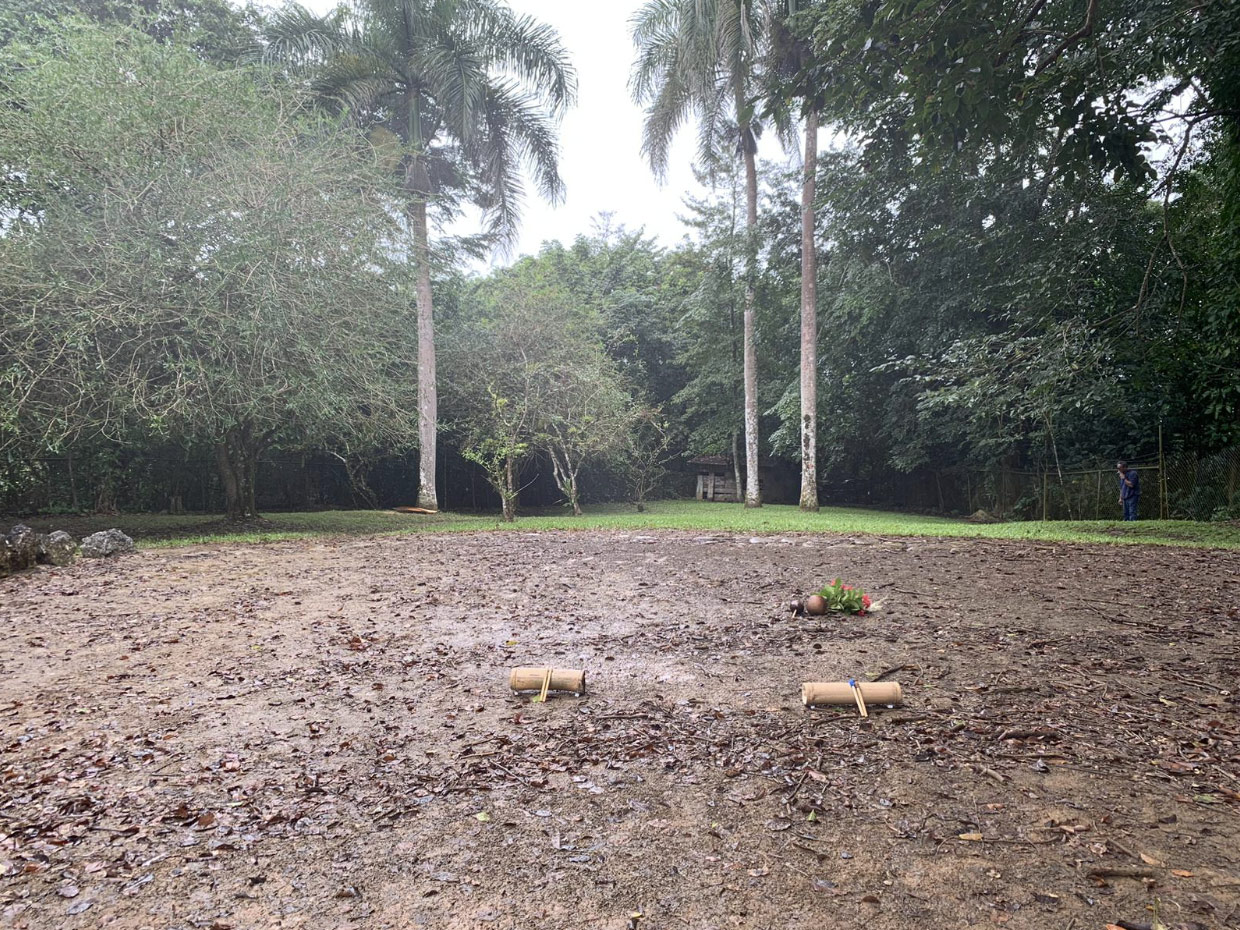
El múcaro es un pequeño búho endémico de Puerto Rico. Su canto es trémulo, y típicamente se vuelve más fuerte hacia el medio y más suave hacia el final.
The múcaro is a small owl endemic to Puerto Rico. Its song is tremulous, typically becoming louder towards the middle and softer towards the end.
En junio del 2022, en fechas cercanas al solsticio de verano, hicimos una procesión por el camino real de Barichara a Guane, un camino que es acogido por un ecosistema de bosque seco tropical. En esta caminata celebramos una manta que nombramos Suat-ty, que traduce a “Canción del sol” en idioma guane. El cultivar esta técnica de tejido de soles, partiendo de la práctica artesanal de Puerto Rico, en Barichara, nos ha llevado a compartir un compromiso de cuidado entre varias familias, construyendo relaciones afectivas y solidarias sostenidas a largo plazo.
In June 2022, on dates close to the summer solstice, we made a procession along the royal road from Barichara to Guane, a road that is embraced by a tropical dry forest ecosystem. On this walk we celebrated a blanket that we named Suat-ty, which translates to “Song of the Sun” in the Guane language. Cultivating this technique of tejido de soles, based on the artisan practice of Puerto Rico, in Barichara, has led us to share a commitment to care among several families, building long-term sustained affective and supportive relationships.
Un instrumento parecido a una flauta que emite un sonido que se escucha a kilómetros de distancia. Se le relaciona con el viento y el cóndor.
A flute-like instrument that emits a sound that can be heard miles away. It is related to the wind and the condor.
En junio del 2021, durante el solsticio de verano, realizamos una procesión inicial en Borikén. Caminamos una vereda en el interior de la isla, hasta llegar a la cueva Yuyu, nacimiento de agua y corriente subterránea del río Encantado. Acompañades por nuestras comunidades, nos adentramos en un compromiso de reconocimiento entre formas de vida.
In June 2021, during the summer solstice, we held an initial procession in Borikén. We walked a path in the interior of the island until we reached the Yuyu cave, source of water and underground current of the Encantado River. Accompanied by our communities, we entered into a commitment of recognition between forms of life.
El fotuto es una trompeta de caracol. Este instrumento de viento de gran antigüedad se encuentra en diversas localidades, desde el Caribe hasta los archipiélagos del Pacífico. Según la tradición oral náhuatl, debe soplarse cuatro veces en el día y cinco en la noche.
The fotuto is a snail trumpet. This ancient wind instrument is found in various locations, from the Caribbean to the Pacific archipelagos. According to the Nahuatl oral tradition, it must be blown four times each day and five times each night.
How Forests Think – Toward an Anthropology Beyond the Human. Eduardo Kohn, Berkeley; Los Angeles; London: University of California Press, 2013, p. 134
Eduardo Kohn, How Forests Think: Toward an Anthropology Beyond the Human (Berkeley: University of California Press, 2013), 134.
Selección del poema “Orquestación diepálica”, de Luis Palés Matos, en colaboración con José I. de Diego Padró, publicado el 7 de noviembre de 1921 en el diario puertorriqueño El Imparcial.
Orquestación diepálica
¡Guau! ¡Guau! Au-au,au-au,au-au… huuummm…
La noche. La Luna. El campo… huuummm…
Zi, zi, zi-zi, co-quí, co-quí, co-co-quí…
Hierve la abstrusa zoología en la sombra.
¡Silencio! Huuuuuummmmmm.
Glu-glu-glu, ta-ta-ti-ta-to, ta-ta-ti-ta-to…
El agua negra corre: ta-ta-ti-ta-to… sssuuuss,
y arriba pit-pit-pit, las estrellas, pit,
imponderablemente
pican la luna. Mirad: pit-pit-pit, sobre los árboles;
y el viento, escoba bruja, barre: fluffffff…
De pronto, círculos, ciiiirculos, ciiiiiirculos,
de los chi-rrí, chi-rrí-chi-rrí-rrí;
se alejan chi-rrí, chi-rrí-rrí-í,
y entran en la gran boca bostezante
del erizado ogro del silencio.
¡Ja-ja, ji-jí, uí! ¡La carcajada
y la tertulia de los búhos isócronos!
Be-eh… Se yergue en dos patas el cabro… be-eh,
y, en la lejanía: do-re-mi-fa-sol,
pío, pío, pío, rui-rui-se-ñor, se-ñor, or…
pzzzzzzh del grillo ríspido y lunático.
¿Qué se aproxima si-gi-lo-sa-men-te…?
Chaf, chaf, chaf, chaf; ohr-áu, ohrr-áu, ohrr-áu-áu
y un buey remoto y cósmico en la bruma
la emprende con los perros trasnochados.
ahorr-áu-áu, au… mmmuuueee… en la ultranoche
pasa humoso y tremendo como una sombra astral.
Las últimas estrellas demarcadas
danzan sobre la niebla vagamente,
y en los difusos pastos sumergidos
cunde un claror lejano y submarino.
Pit… pit… pit.. Co-quí, co-co-quí, quí… pitirr-pitirr, chi-chichichuí, chi-chichichuí…
choclá, choclá, choclá, mmmeee…
Caacaracaaa, pío, pío, caaacaracaaa…
Juá, juá, juá, juá; uishe-ó, uishe-ó, uishe-ó…
¡Cúcurucu! ¡Quiquiriquí! ¡Cócoroco!
Selection from the poem “Orquestación diepálica,” by Luis Palés Matos, in collaboration with José I. de Diego Padró, published on November 7, 1921 at the Puertorrican journal El Imparcial.
Orquestación diepálica
¡Guau! ¡Guau! Au-au,au-au,au-au… huuummm…
La noche. La Luna. El campo… huuummm…
Zi, zi, zi-zi, co-quí, co-quí, co-co-quí…
Hierve la abstrusa zoología en la sombra.
¡Silencio! Huuuuuummmmmm.
Glu-glu-glu, ta-ta-ti-ta-to, ta-ta-ti-ta-to…
El agua negra corre: ta-ta-ti-ta-to… sssuuuss,
y arriba pit-pit-pit, las estrellas, pit,
imponderablemente
pican la luna. Mirad: pit-pit-pit, sobre los árboles;
y el viento, escoba bruja, barre: fluffffff…
De pronto, círculos, ciiiirculos, ciiiiiirculos,
de los chi-rrí, chi-rrí-chi-rrí-rrí;
se alejan chi-rrí, chi-rrí-rrí-í,
y entran en la gran boca bostezante
del erizado ogro del silencio.
¡Ja-ja, ji-jí, uí! ¡La carcajada
y la tertulia de los búhos isócronos!
Be-eh… Se yergue en dos patas el cabro… be-eh,
y, en la lejanía: do-re-mi-fa-sol,
pío, pío, pío, rui-rui-se-ñor, se-ñor, or…
pzzzzzzh del grillo ríspido y lunático.
¿Qué se aproxima si-gi-lo-sa-men-te…?
Chaf, chaf, chaf, chaf; ohr-áu, ohrr-áu, ohrr-áu-áu
y un buey remoto y cósmico en la bruma
la emprende con los perros trasnochados.
ahorr-áu-áu, au… mmmuuueee… en la ultranoche
pasa humoso y tremendo como una sombra astral.
Las últimas estrellas demarcadas
danzan sobre la niebla vagamente,
y en los difusos pastos sumergidos
cunde un claror lejano y submarino.
Pit… pit… pit.. Co-quí, co-co-quí, quí… pitirr-pitirr, chi-chichichuí, chi-chichichuí…
choclá, choclá, choclá, mmmeee…
Caacaracaaa, pío, pío, caaacaracaaa…
Juá, juá, juá, juá; uishe-ó, uishe-ó, uishe-ó…
¡Cúcurucu! ¡Quiquiriquí! ¡Cócoroco!
Este campo sensible es desde donde Ber Zabalaga habla con su práctica y sabiduría. Junto a él, el programa de Materia Abierta será acompañado por Awilda Sterling-Duprey, Alessandra Pomarico, Engel Leonardo y Ochy Curiel.
This sensitive field is where Ber Zabalaga speaks with his practice and wisdom. Together with him, the Materia Abierta program will be accompanied by Awilda Sterling-Duprey, Alessandra Pomarico, Engel Leonardo, and Ochy Curiel.
Espíritus ancestrales antillanos, habitantes de suelos y cielos. Invocamos a estos seres de luz para la fertilidad de la tierra y la buena cosecha.
Antillean ancestral spirits, inhabitants of soils and skies. We invoke these beings of light for the fertility of the earth and a good harvest.
Caguana refiere al centro ceremonial indígena, una reunión de bateyes en la región central de Borikén. En este espacio se resguarda un sustento de vida ancestral para la región Caribe.
Caguana refers to the Indigenous ceremonial center, a collection of bateyes in the central region of Borikén. An ancestral life support for the Caribbean region is protected in this space.
El mayohuacán es un tambor de madera presente en el baile y la canción taína. Durante el desarrollo de este texto, nos acercamos al vínculo de éste y el teponaztli. Es esencial destacar que en lengua náhuatl, la palabra teponaztli implica nociones de “dualidad”, “complemento” y “acompañamiento”.
The mayohuacán is a wooden drum present in the dance and the Taíno song. During the development of this text, we approached the link between it and the teponaztli. It is essential to note that in the Nahuatl language, the word teponaztli implies notions of "duality", "complement," and "accompaniment."
Un batey es un lugar de encuentro que convoca a la formación de nuestra comunidad. En este espacio se celebra y surge la fuerza para luchar hacia dónde queremos dirigirnos, ateniéndonos a la ancestralidad de nuestros pueblos. Este es un espacio de resistencia.
A batey is a meeting place that calls for the formation of our community. In this space, the strength to fight for where we want to go arises and is celebrated, adhering to the ancestry of our peoples. This is a space of resistance.
DOCENTES
Akire Huauhtli es originaria del pueblo de Tlaxialtemalco, Xochimilco, Ciudad de México. Estudió la Maestría en Artes y Diseño y el curso de Formación de Profesores en Lengua y Cultura Náhuatl en la Universidad Nacional Autónoma de México (UNAM). Ha sido docente en la Universidad Intercultural del Estado de México, Escuela Nacional de Lenguas, Lingüística y Traducción (ENALLT/UNAM), Facultad de Artes y Diseño (FAD UNAM), así como tallerista en el Centro de las Artes San Luis Potosí, en el Centro Especializado para Adolescentes Femenil como parte del programa FARO Tutelar y en FARO Tláhuac SECULT CDMX. Formó parte del Comité Organizador del Festival Anual de Textiles (Ediciones 1 a 3). También participó como ilustradora en la elaboración de materiales didácticos para la enseñanza de la lengua náhuatl en la ENALLT/UNAM así como en el proyecto "El Color de la Pobreza" en colaboración con Pie de Página. Actualmente trabaja en el proyecto Tintes "El Duraznito", el cual está dedicado a la memoria de su abuelo campesino Manuel Jiménez así como a la de las manos chinamperas de la región. Gestiona y colabora en el colectivo Tlalxochicuicatl, así como en la Banda de Viento San Luis Huentli.
Jorge González Santos vive en Borikén, Puerto Rico. Su práctica artística establece una plataforma para la recuperación de la cultura material boricua, en un intento por crear narrativas entre lo indígena y lo moderno. En 2014 fundó Escuela de Oficios en respuesta a la ausencia deliberada y al deterioro de infraestructuras educativas. Al proponer una recuperación a través de la regeneración comunitaria, Escuela de Oficios crea espacios de aprendizaje colectivo y promueve la educación autogestionada. Sus actividades se centran en un programa móvil que busca fomentar principios de crecimiento y cultivo arraigados a los tiempos de la tierra. Un acercamiento fundamental para ello es el emplear técnicas artesanales para gestionar y trabajar con saberes que potencian situaciones críticas para la producción de conocimientos. Su trabajo individual se ha presentado en el Instituto de Cultura Puertorriqueña y en la galería Embajada, en San Juan; ha contribuido en exposiciones en Los Angeles Contemporary Exhibitions, el Whitney Museum y documenta 14. Durante el periodo 2020-2022, González fue becario del Vera List Center, de Puerto Rico Arts Initiative y de United States Artists.
Akire Huauhtli es originaria del pueblo de Tlaxialtemalco, Xochimilco, Ciudad de México. Estudió la Maestría en Artes y Diseño y el curso de Formación de Profesores en Lengua y Cultura Náhuatl en la Universidad Nacional Autónoma de México (UNAM). Ha sido docente en la Universidad Intercultural del Estado de México, Escuela Nacional de Lenguas, Lingüística y Traducción (ENALLT/UNAM), Facultad de Artes y Diseño (FAD UNAM), así como tallerista en el Centro de las Artes San Luis Potosí, en el Centro Especializado para Adolescentes Femenil como parte del programa FARO Tutelar y en FARO Tláhuac SECULT CDMX. Formó parte del Comité Organizador del Festival Anual de Textiles (Ediciones 1 a 3). También participó como ilustradora en la elaboración de materiales didácticos para la enseñanza de la lengua náhuatl en la ENALLT/UNAM así como en el proyecto "El Color de la Pobreza" en colaboración con Pie de Página. Actualmente trabaja en el proyecto Tintes "El Duraznito", el cual está dedicado a la memoria de su abuelo campesino Manuel Jiménez así como a la de las manos chinamperas de la región. Gestiona y colabora en el colectivo Tlalxochicuicatl, así como en la Banda de Viento San Luis Huentli.
Engel Leonardo vive y trabaja en Santo Domingo, República Dominicana. Algunos de los intereses centrales de su trabajo son las relaciones entre lo humano y la historia, la arquitectura y la cultura material. Su producción suele basarse en investigaciones sobre cultura antillana, arquitectura moderno-tropical, historias reprimidas por la modernidad y la transmisión del conocimiento indígena y africano a través de objetos generalmente vistos como artesanales, folclóricos o etnográficos. Le interesan especialmente las narrativas que ponen en tensión nociones de tropicalidad, modernismo, cultura indígena y afroatlántica. Actualmente trabaja en el proyecto Bahoruco, una investigación sobre la resistencia al colonialismo, la modernidad y el capitalismo a través de territorios, espiritualidades y ecosistemas de las Antillas y América que se lleva a cabo entre República Dominicana, Haití, las Antillas, el recóncavo Bahiano y el Amazonas. Sus obras forman parte de las colecciones del Museo Reina Sofía, Museo Guggenheim, Centre national des arts plastiques (CNAP), Kadist, Colección Patricia Phelps de Cisneros (CPPC) y Museo de Arte Moderno de Santo Domingo. Ha presentado exhibiciones individuales en el Museo de Arte Contemporáneo de Niterói, en Río de Janeiro, y en Kunsthalle, en Lisboa. Actualmente participa en la muestra colectiva Forecast Form: Art in the Caribbean Diaspora, en el Museo de Arte Contemporáneo de Chicago.
Escuela de Oficios fue fundada en 2014 como respuesta a la ausencia deliberada y al deterioro de infraestructuras educativas. Al proponer una recuperación a través de la regeneración comunitaria, Escuela de Oficios crea espacios de aprendizaje colectivo y promueve la educación autogestionada. Sus actividades se centran en un programa móvil que busca fomentar principios de crecimiento y cultivo arraigados a los tiempos de la tierra. Un acercamiento fundamental para ello es el emplear técnicas artesanales para gestionar y trabajar con saberes que potencian situaciones críticas para la producción de conocimientos.
Nikolay Oleynikov es artista; punk; anti fascista; miembro del colectivo artístico Chto Delat y de la banda de música Arkady Kots; mentor en la Chto Delat SCHOOL of ENGAGED ART (ahora School of Emergency) y en Free Home University; trabajador de la Casa de la Cultura de ROSA; colaborador y editor de arteverywhere.ca; autor de SEX of the OPPRESSED (FreeMarxistPress/PS-Guelph) y coeditor de When the Roots Start Moving/Resonating with Zapatismo (Archive Books, 2021). Ha expuesto individual y colectivamente en instituciones como Musée d´Art Moderne de la Ville de Paris (Paris), MMOMA (Moscú), MUAC (Ciudad de México), Reina Sofia (Madrid), Bienal de São Paulo, Museo Serravales (Porto), Cittadellarte/Fundación Pistoletto (Biella), Museo de Arte Contemporáneo L.Pecci (Prato), entre otros.
Alessandra Pomarico (PhD) es curadora independiente, escritora y educadora. Trabaja en la intersección entre el arte, la pedagogía, el activismo y la construcción de comunidad. Es cofundadora de Free Home University, un experimento artístico y pedagógico sobre compartir conocimiento al vivir en común; del programa de residencias y festival Sound Res; de Ammirato Culture House, un espacio para prácticas sociales y centro comunitario en un edificio municipal previamente abandonado; de The Common Orchard for Minor Fruits, un proyecto rural y social generativo en colaboración con agricultores orgánicos y activistas, y de la red translocal Ecoversities Alliance para reimaginar la educación, en la cual participa activamente. Tras una década de contribuir alrededor de cuestiones de comunalización, cuidado y parainstituciones artísticas, la investigación actual de Alessandra se enfoca en ampliar la ecología del conocimiento a través de epistemologías relacionales más allá de los paradigmas occidentales. Además, apoya esfuerzos de reforestación y se enfoca en aprender de los bosques. Sus proyectos recientes incluyen firefly frequencies radio, el Mediterranean Ecofeminist, Decolonial Union for Self-Education M.E.D.U.S.E, la School of the We (<rotor>, Graz), Grounding~Seeding (Tranzit, Bratislava), The New Alphabet School #Commoning (HKW, Berlin) y #Healing (Dakar). Es editora en Arts Everywhere, curó el volumen Pedagogies Otherwise (Ecoversities Publications, 2018), coeditó What’s there to learn (Publication Studio Guelph, 2018) y When the Roots Start Moving: Resonating with Zapatismo (Archive Books 2021). Sus artículos se han publicado en numerosos libros y revistas y ha participado en numerosas iniciativas colaborativas. Vive entre Nueva York e Italia.
Suely Rolnik es psicoanalista, escritora y profesora titular de la Pontificia Universidad Católica de São Paulo. Su trabajo se ubica en un territorio trasversalizado por el filosófico, el clínico, el político y el estético y se manifiesta en la investigación, la escritura, la docencia, y la curaduría. Ha publicado los libros Esferas de la insurrección. Apuntes para descolonizar el inconsciente (Tinta Limón, 2019), Archivmanie/Archive Mania (dOCUMENTA 13, 2011), Antropofagia Zombi (Hekht, 2022), Cartografía sentimental (Tinta Limón, en prensa), y en coautoría con Félix Guattari, Micropolítica. Cartografías del deseo (Tinta Limón y Traficantes de Sueños, 2006).
Awilda Sterling-Duprey es una figura central de la escena cultural de Puerto Rico. Celebrada igualmente como pintora, artista de performance y bailarina, Sterling-Duprey entreteje el performance en sus pinturas e instalaciones. El arte conceptual y dadaísmo son importantes influencias en su obra, así como las tradiciones culturales y religiosas del Caribe. Durante más de cuarenta años, ha creado obras que combinan la danza afrocaribeña con la danza moderna experimental en Puerto Rico, Nueva York y a lo largo de Europa, América Latina y el Caribe. Sterling-Duprey asistió a la Escuela de Artes Plásticas y Diseño de San Juan, a la Universidad de Puerto Rico en Río Piedras y obtuvo un grado de maestría del Pratt Institute, en Nueva York. Es fundadora de Pisotón, el colectivo de danza experimental que transformó la escena de la danza y el performance de Puerto Rico en la década de 1980. Ha obtenido numerosas becas y residencias artísticas, incluyendo una USA Fellowship en coreografía en 2010, la beca Tree of Life en 2019 y las residencia Mass MoCA, Rauschenberg y Joan Mitchell en 2022. Su más reciente obra incluye Lacks Criticality (2018-2023), una danza performática multimedia comisionada por Temple University, fue presentada como parte de la exposición “no existe un mundo poshuracán”, en el Whitney Museum, y ...blindfolded (2019 - en curso), una exploración performática de espacios arquitectónicos, presentada en la 2022 Whitney Museum Biennial.
Ber Zabalaga es hombre medicina, mago, canal natural y artista. Estudió reiki, terapia multidimensional, sanación de María Magdalena, meditación y canalización, entre otras técnicas, y es iniciado en el camino chamánico, el sahúmo ancestral mexica y el rapé. Investiga formas de trabajo artístico-energéticas, crea amuletos, altares, varitas mágicas y otros objetos chamánicos y diseña y performa rituales colectivos en situaciones artísticas, como la inauguración de la Casa do Povo, en 2014 en São Paulo y el encuentro “El canto de la Yerba Bruja”, organizado por el MoMA en Valle de Bravo, México, en 2022. Es licenciado en Actuación por la Escuela Superior de Teatro e Cinema de Lisboa (2006), magister en Práctica Avanzada de Teatro por la Central School of Speech and Drama de Londres (2010) y realizó el programa de artistas de la Universidad Torcuato Di Tella de Buenos Aires (2017). Hizo residencias en URRA (Buenos Aires, 2014) y Kiosko (Santa Cruz de la Sierra, 2016). Expuso individualmente en la galería Manzana Uno (Santa Cruz, 2016), Anexo Maturín (Buenos Aires, 2021) y espacio de arte Persona (La Paz, 2022). Desde 2017 coordina el Retiro Colibrí dos veces al año, en el lago Titicaca, junto con María Alejandra Ayoroa. Vive en Buenos Aires.
Tutors
Ochy Curiel is Afro-Caribbean Dominican and resides in Colombia. She is an activist in the lesbian-feminist, anti-racist movement as well as the autonomous feminism movement and is one of the leaders of decolonial feminism. She is co-founder of the Grupo Latinoamericano de Estudios, Formación y Acción Feminista (GLEFAS). She is also a singer-songwriter. She holds a PhD and a master's in social anthropology from the Universidad Nacional de Colombia. She is a specialist in higher education, has a mention in social sciences, and holds a bachelor’s degree in social work. She is a professor-researcher at the Universidad Nacional de Colombia and the Universidad Javeriana in Bogotá, Colombia. Her publications include the books La nación heterosexual, Análisis del discurso jurídico y el régimen heterosexual desde la antropología de la dominación (2013) and Un Golpe de Estado: La Sentencia 168-13. Continuidades y discontinuidades del racismo en República Dominicana (2021). She has co-edited several books and authored multiple articles in which she articulated race, class, gender, sexuality, and nation.
Jorge González Santos lives in Borikén (Puerto Rico). His artistic practice establishes a platform for the recovery of Boricua material culture, in an attempt to create narratives between the indigenous and the modern. In 2014, he founded Escuela de Oficios in response to deliberate absences and the deterioration of educational infrastructure. By proposing a recovery through community regeneration, Escuela de Oficios creates spaces for collective learning and promotes self-managed education. Its activities are focused on the creation of a mobile program that seeks to promote principles of growth and cultivation rooted in the cycles of the earth. A fundamental approach is to use traditional techniques to manage and work in favor of knowledge that enhances critical situations for the production of knowledge. His work has been presented in solo shows at the Institute of Puerto Rican Culture and at the Embassy, San Juan, and he has contributed to exhibitions at LACE, Los Angeles; the Whitney Museum of American Art; and documenta 14. González was a 2020-2022 Vera List Center Fellow. He is currently a fellow of the Puerto Rico Arts Initiative and United States Artists.
Akire Huauhtli was born in the town of Tlaxialtemalco, Xochimilco in Mexico City. She studied the Master of Arts and Design and the Teacher Training course in Nahuatl Language and Culture both at Universidad Nacional Autónoma de México (UNAM). She has taught at the Universidad Intercultural del Estado de México, Escuela Nacional de Lenguas, Lingüística y Traducción (ENALLT UNAM), Facultad de Artes y Diseño (FAD UNAM), and has been a workshop facilitator at Centro de las Artes San Luis Potosí, at Centro Especializado para Adolescentes Femenil as part of the program FARO Tutelar and at FARO Tláhuac SECULT CDMX. She was part of the Organizing Committee of the Festival Anual de Textiles (Editions 1 to 3). And she participated as an illustrator in the elaboration of didactic materials for the teaching of the Nahuatl language at ENALLT/UNAM as well as in the project "El Color de la Pobreza" in collaboration with Pie de Página. She currently colaborates on the project Tintes "El Duraznito", which is dedicated to the memory of her peasant grandfather Manuel Jiménez as well as to the chinampera hands of the region. She is a member of the Tlalxochicuicatl collective, as well as of the Banda de Viento San Luis Huentli.
Engel Leonardo (Baní, 1977) lives and works in Santo Domingo, Dominican Republic. The relationships between humans and history, architecture, and material culture are some of his central interests. His production is usually based on research on Antillean culture, modern tropical architecture, stories repressed by modernity, and the transmission of Indigenous and African knowledge through objects generally seen as artisanal, folkloric, or ethnographic. He is especially interested in architectural and craft narratives that stress notions of tropicality, modernism, and Indigenous and Afro-Atlantic culture. He currently works on the Bahoruco project between the Dominican Republic, Haiti, the Antilles, the Bahian Recóncavo, and the Amazon; this is an investigation of the resistance to colonialism, modernity, and capitalism through territories, spiritualities, and ecosystems of the Antilles and America. His works are part of the collections of the Museo Reina Sofía (Madrid), the Guggenheim Museum (New York), CNAP (Paris), Kadist (Paris-San Francisco), CPPC (New York-Caracas), and MAM (Santo Domingo). He has presented solo exhibitions at MAC Niteroi (Rio de Janeiro) and Kunsthalle Lissabon (Lisbon). He is currently participating in the Forecast Form: Art in the Caribbean Diaspora collective exhibition at MCA Chicago.
Escuela de Oficios was founded in 2014 as a response to deliberate absences and the deterioration of educational infrastructure. By proposing a recovery through community regeneration, Escuela de Oficios creates spaces for collective learning and promotes self-managed education. Its activities are focused on the creation of a mobile program that seeks to promote principles of growth and cultivation rooted in the cycles of the earth. A fundamental approach is to use traditional techniques to manage and work in favor of knowledge that enhances critical situations for the production of knowledge.
Nikolay Oleynikov is an artist; punk; antifascist; member of art collective Chto Delat and of the Arkady Kots music band; mentor at Chto Delat SCHOOL of ENGAGED ART (now School of Emergency) and at Free Home University; worker at Casa de la Cultura de ROSA; contributor and editor for arteseverywhere.ca; author of the SEX of the OPPRESSED (FreeMarxistPress/PS-Guelph) and co-editor of When the Roots Start Moving/Resonating with Zapatismo (Archive Books, 2021). His work has been exhibited at institutions such as Musée d´Art Moderne de la Ville de Paris (Paris), MMOMA (Moscow), MUAC (Mexico City), Reina Sofia (Madrid), São Paulo Biennal, Serravales Museum (Porto), Cittadellarte/Fondazione Pistoletto (Biella), Museo Arte Contemporanea L.Pecci (Prato), among others.
Alessandra Pomarico (PhD) is an independent curator, writer, and educator working at the intersection of arts, pedagogy, activism, and community building. Co-founder of the ongoing Free Home University, an artistic and pedagogical experiment in sharing knowledge by living in common; of the residency program and festival Sound Res; of Ammirato Culture House, a hub for social practices and a community center in a former municipal building; and of the Common Orchard for Minor Fruits, a generative rural and social project in collaboration with organic farmers and activists. She is also a very active organizer in the trans-local network Ecoversities Alliance to reimagine education. Recently, she has been supporting reforestation efforts and focusing on learning from the forests. After a decade of contributing to questions of commoning, care, and artists’ para-institutions, Alessandra’s most current research focuses on widening the ecology of knowledge through relational epistemologies, beyond Western paradigms. Recent projects include firefly frequencies radio, the Mediterranean Ecofeminist, Decolonial Union for Self-Education M.E.D.U.S.E, the School of the We (<rotor>, Graz), Grounding~Seeding (Tranzit, Bratislava), the New Alphabet School #Commoning (HKW, Berlin) and #Healing (Dakar). Editor at artseverywhere, she curated the volume Pedagogies Otherwise (Ecoversities Publications, 2018) and co-edited What’s There to Learn (Publication Studio Guelph, 2018) and When the Roots Start Moving: Resonating with Zapatismo (Archive Books 2021). Her articles have been published in numerous books and magazines, and she has taught, lectured, and participated in many collaborative initiatives widely. She lives between New York and Italy.
Suely Rolnik is a psychoanalyst, writer, and tenured professor at the Pontificia Universidad Católica de São Paulo. Her work is located in a territory intersected by the philosophical, the clinical, the political and the aesthetic, and is manifested in research, writing, teaching, and curating. She has authored Spheres of Insurrection: Notes on Decolonizing the Unconscious (Wiley, 2023), Archivmanie/Archive Mania (dOCUMENTA 13, 2011), Antropofagia Zombi (Hekht, 2022), Cartografía sentimental (Tinta Limón, in press), and, with Félix Guattari, Molecular Revolution in Brazil (Semiotext/MIT, 2006).
Awilda Sterling-Duprey is a central figure in Puerto Rico’s cultural scene. Equally celebrated as a painter, performance artist, and dancer, she interweaves performance into her paintings and installations. Conceptual art and Dada are significant influences in her work, as are Caribbean cultural and religious traditions. For more than 40 years, she has created and performed experimental dance works combining Afro-Caribbean dance and modern experimental movement in Puerto Rico and New York City and throughout Europe, Latin America, and the Caribbean. Sterling-Duprey attended the Escuela de Artes Plásticas y Diseño, San Juan; the University of Puerto Rico, Río Piedras; and she earned an MFA from Pratt Institute, New York. She is a founding member of Pisotón, the experimental dance collective that transformed Puerto Rico’s dance and performance scene in the 1980s. She is a recipient of numerous fellowships and artist residencies, including a USA Fellowship in Choreography (2010), Tree of Life grant (2019), Mass MoCA residency (2022), Rauschenberg Residency (2022), and Joan Mitchell Fellowship (2022). Her latests works include Lacks Criticality (2018-23), a multimedia dance performance commissioned by Temple University, which was presented as part of “no existe un mundo poshuracán” at the Whitney Museum; and ...blindfolded (2019-ongoing), a performance exploration of architectural spaces, presented at the 2022 Whitney Biennial.
Ber Zabalaga is a medicine man, a magician, a natural channel, and an artist. He studied reiki, multidimensional therapy, healing of María Magdalena, and meditation and channeling, among other techniques, and is initiated into the shamanic path, the Mexica ancestral incense, and rapé. He investigates artistic-energetic forms of work, creating amulets, altars, magic wands, and other shamanic objects, and he designs and performs collective rituals in artistic settings, such as the inauguration of Casa do Povo, São Paulo (2014) and the meeting El canto de la Yerba Bruja organized by MoMA in Valle de Bravo, Mexico (2022). He has a degree in acting from the Escuela Superior de Teatro e Cinema de Lisboa (2006) and a master's in advanced theater practice from the Central School of Speech and Drama in London (2010), and he completed the artist program at the Torcuato Di Tella University of Buenos Aires (2017). He held residencies at URRA (Buenos Aires, 2014) and Kiosko (Santa Cruz de la Sierra, 2016). He exhibited individually at the Manzana Uno gallery (Santa Cruz, 2016), Anexo Maturín (Buenos Aires, 2021), and the Persona art space (La Paz, 2022). Together with María Alejandra Ayoroa, he has coordinated the Hummingbird Retreat twice a year on Lake Titicaca since 2017. He lives in Buenos Aires.
CRÉDITOS
Equipo de trabajo
Jorge González Santos
Curaduría 2023
Federico Pérez Villoro
Dirección
Ana Rivera
Coordinación general
Eduardo Makoszay Mayén
Producción
Eva Posas
Coordinación editorial
Zoë Heyn-Jones
Desarrollo y procuración de fondos
Juliana Steiner
Coautora de la correspondencia curatorial
Andrea Volcán
Diseño gráfico
Esteban German
Desarrollo web
Isabel Zapata
Edición y corrección de estilo (español)
Consejo asesor
Sara Garzón
Mônica Hoff
Natalia Zuluaga
Cinthya García Leyva
Contacto
info@materiaabierta.com
Instagram: @materiaabierta
Twitter: @materiaabierta
Credits
Team
Jorge González Santos
Curator 2023
Federico Pérez Villoro
Director
Ana Rivera
General coordinator
Eduardo Makoszay Mayén
Producer
Eva Posas
Editorial coordinator
Zoë Heyn-Jones
Development and fundraising
Juliana Steiner
Co-author of curatorial correspondence
Andrea Volcán
Graphic design
Esteban German
Website development
Isabel Zapata
Editor and proofreader (Spanish)
Advisory Board
Sara Garzón
Mônica Hoff
Natalia Zuluaga
Cinthya García Leyva
Contact
info@materiaabierta.com
Instagram: @materiaabierta
Twitter: @materiaabierta
